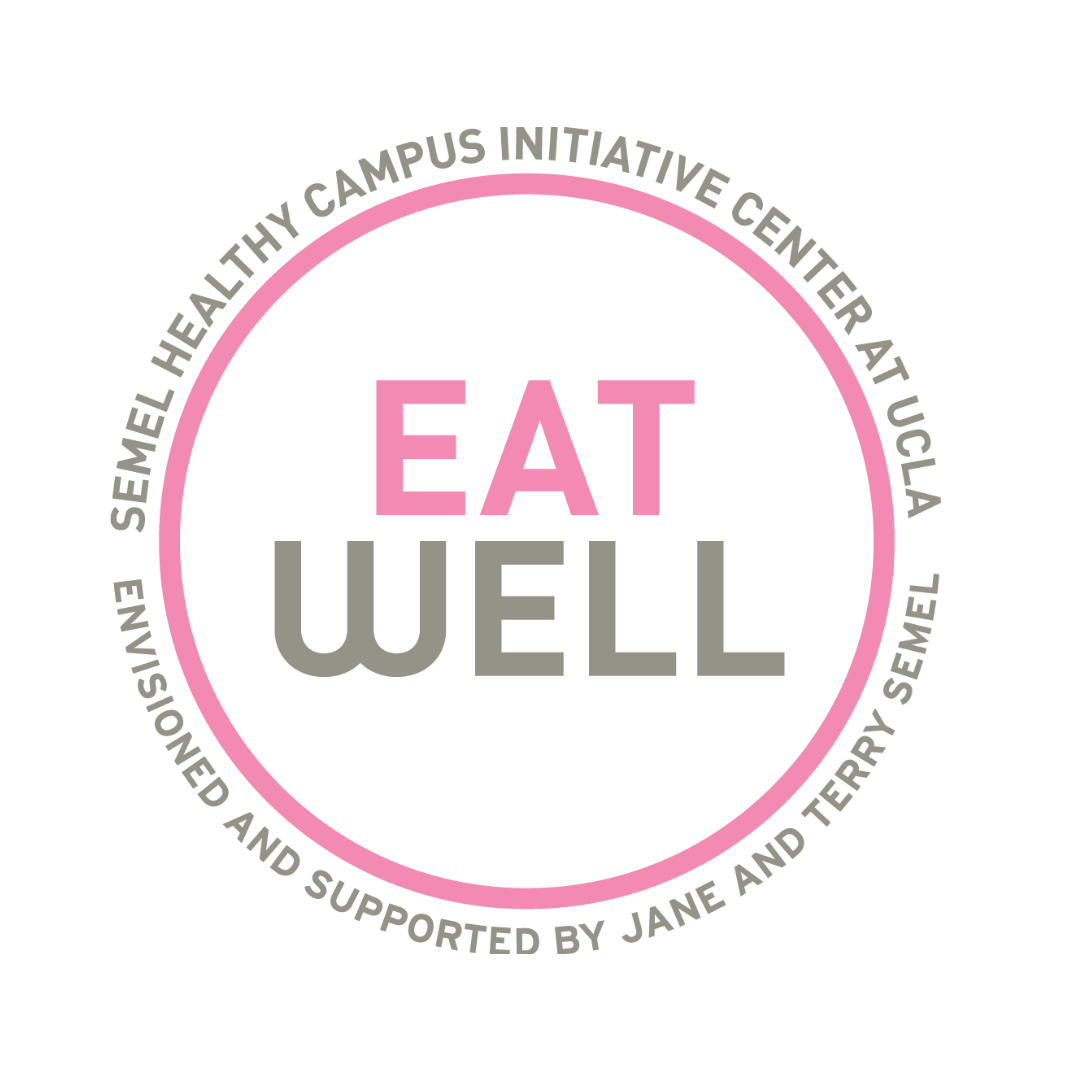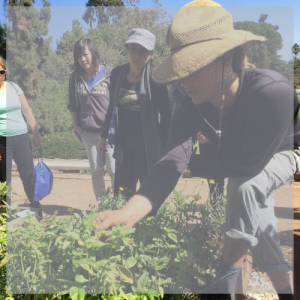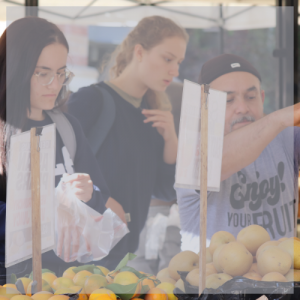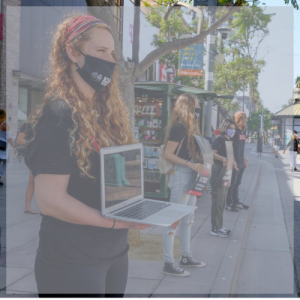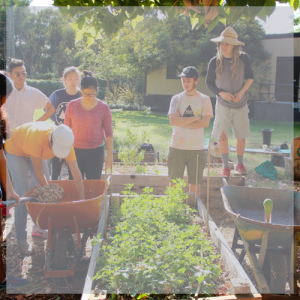Hands-on learning and academic opportunities
A key priority of Semel HCI and the Eatwell Pod is to promote knowledge of food: where it comes from, how it fuels us, how it connects us, and how to shop for and prepare healthy food.
- UCLA Teaching Kitchen Collaborative
- In 2016, HCI joined the national Teaching Kitchen Collaborative (TKC) as a founding member. The TKC is a network of thought leaders using teaching kitchen facilities as catalysts of enhanced personal and public health across medical, corporate, school, and community settings. Headed by Janet Leader, Lecturer and Associate Director of Field Studies, Department of Community Health Sciences in the Fielding School of Public Health, UCLA now offers a series of workshops that instruct health professional students on culinary skills, healthy recipes, nutrition information, and much more
- Read more about the program here!
- Cooking Class on the Hill
- UCLA Dining offers a series of cooking workshops to students for the price of one dining swipe per class! Developed by Dolores Hernandez, Dietitian and Nutrition Education Coordinator for UCLA Dining, the curriculum consists of six hands-on classes that include information about making healthy, low-cost items such as breakfast burritos, healthy bowls, and chopped vegetable dishes, like Pasta Primavera. Students used one meal “swipe” as payment for classes and were invited to eat the food they prepared. The classes were offered for the first time in 2017, and we hope to offer them again this academic year.
- Food Studies Minor
- Food Studies Graduate Certificate
Campus Events
- The Eatwell Pod engages the campus community in conversations about food, nutrition, and food systemsevents, lectures, and food literacy campaigns
- Each year, EatWell celebrates national Food Day by curating a series of. Learn more about our 2016 Food Day events here.
Food and Social Justice
- The University of California (UC) Global Food Initiative (GFI) was inspired by HCI, launched by President Napolitano in July 2014, and deals with one of the most pressing issues of our time: How to sustainably and nutritiously feed a world population expected to reach eight billion by 2025. Visit the Global Food Initiative website for more information.UCLA students, faculty, and staff continue to serve in leadership roles as part of the University of California Office of the President’s (UCOP) Global Food Initiative (GFI). GFI connects research, outreach, and operations to find sustainable solutions for food security and health. UCLA faculty members lead GFI subcommittees (see the GFI section of our Progress Report for more details).
- Undergraduate and Graduate students at UCLA can participate in the GFI Fellows Program. Read about the inspiring work all of our UCLA GFI Fellows are doing here. For example, some of our fellows started a program that gleans produce from local farmers’ markets and redistributes it to food insecure students on campus. Each week UCLA students collect and deliver ~250 lbs. of produce to hungry Bruins. You can read more in this UCLA Newsroom article.
- UCLA was designated a fair-trade university in May 2016, read the Daily Bruin article to learn more.
Food, Sustainability, and Planetary Health
- Sustainability, food and health are inextricably linked. PUT SOMETHING BOUT SOVEREIGNTY OR PEOPLE MORE BROADLY ACCESS TO FOOD. EatWell aims to research these connections and innovate ways to make our campus food offerings more sustainable.
- Part of healthy eating is a healthy planet, and the choices you make about your food affect our environment. Read up about food and other topics on the Green Living Guide provided by UCLA Sustainability.
- In partnership with the Menus of Change University Research Collaborative (MCURC) UCLA Dining and EatWell are conducting innovative research to help move UCLA “toward healthier, more sustainable, plant-forward diets.” Our research has included:
- experimenting with burger patty recipes containing various combinations of beef and plant (mushrooms and lentils) proportions in effort to prioritize plant-based protein over red meat;
- conducting a rigorous evaluation of the new Flex Bar at De Neve dining hall’s impact on undergraduate student consumption of plant- and animal-based protein; and
- evaluating a pilot teaching kitchen course for health professional students to determine effectiveness of the course in improving participants’ nutrition knowledge, cooking skills, confidence in preparing healthy food and counseling others, and cooking and dietary behaviors.
- See what UCLA Dining Services is doing to improve our campus ‘foodprint’ in the dining halls—and beyond. Explore additional facts and sustainability reports through UCLA Sustainability.
- Green Mondays Campaign
- Two non-meat entrées served at each residential restaurant
- Certified Green Restaurants
- Bruin Plate
- Rendezvous
- Tray-free Dining Benefits
- Reduced water use from washing
- Reduced energy use needed to heat water
- Reduced food waste
- Purchasing
- Currently, Dining sources approximately 19% of total food purchases from sustainable sources (2015-2016)
- This sustainable food includes local milk, local fruits, USDA organic fruits and vegetables, and exclusively cage-free, humanely raised eggs
- Composting & Recycling
- More than 50 tons of compostable materials are diverted from the landfill each month through a commercial composting program
- Dining Services generates on average 400 gallons of used cooking oil each month; the used oil is picked up and recycled into biodiesel by a third party company
- At all four residential restaurants, food scraps from food preparation (e.g. egg shells, vegetable trimmings, etc.) and the post-consumer waste (food left on plates) are separated from non-compostable waste and sent to a composting facility
- All to-go items at Cafe 1919 can be composted—except for chip bags (which go in the trash)
- Almost all to-go packaging is either compostable or recyclable
- Different bins are available all over the hill for composting, recycling, and trash
